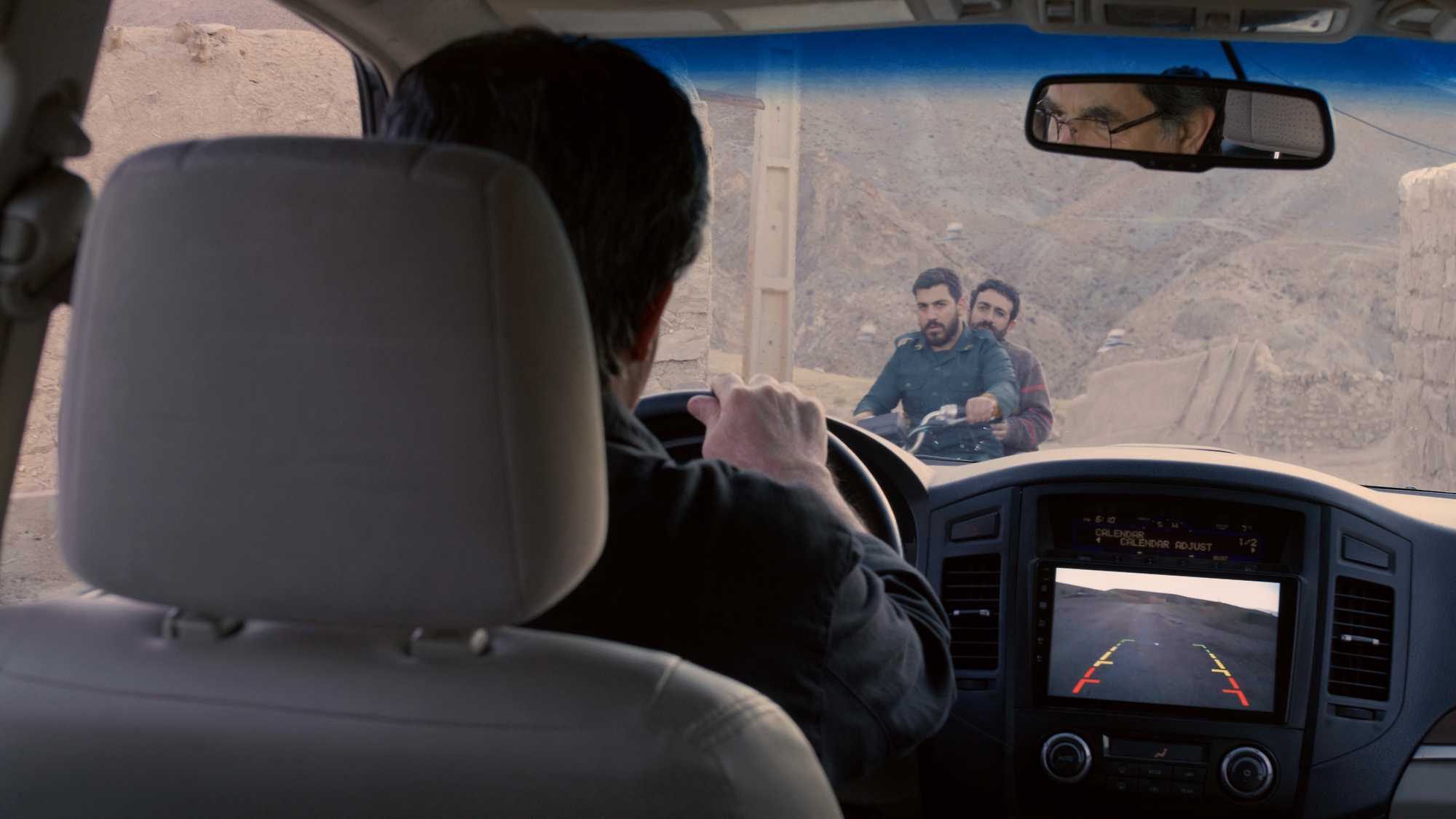True to its title, there is not a bear to be found in Jafar Panahi’s latest piece of surprisingly mirthful meta-fiction, and yet a looming sense of danger is as palpable in the film as in the reality it mirrors.

A masterwork… Panahi once again uses his situation to produce something that’s somehow life-affirming and deeply devastating.
Screened as part of NZIFF 2023
No Bears 2022
Khers nist
“Town people have problems with authorities. We have problems with superstition.”
Thus observes a village elder, who in one breath warns that it is unsafe to walk night paths alone due to danger from bears, then in another proclaims the bears “nonsense” made up to scare the villagers.
Dissident Iranian cine-maestro Jafar Panahi interleaves dual tales of tragic love. We follow the curious adventures of filmmaker “Jafar Panahi” (again playing a version of himself) ensconced in a parochial village, dangerously close to the border, involuntarily drawn into a scandal involving young lovers at odds with archaic local tradition. Concurrently, a beset urban couple seek to escape their political context in the film-within-the-film that Mr Panahi is attempting to direct remotely, in the face of government restrictions and increasingly unstable internet.
Each tale acts as an analogue for Panahi’s own struggle to come to terms with love for a country whose various power structures suppress freedoms to live and create and provide a critical reflection on the political efficacy of art. No Bears’ thoughtful evocation of melancholy and creative frustration is buoyed by a strong vein of wry humour, making the film as engaging as it is incisive. — Jacob Powell
“It's a brilliant movie—an intricate and layered drama that somehow manages to be funny, angry, playful and despairing by turns. Panahi is as incisive a social critic as ever... But Panahi has also made a powerful and deeply pessimistic statement about the nature of cinema itself. The movies may be capable of magic, but here, he reminds us, they also have their limitations.” — Justin Chang, NPR